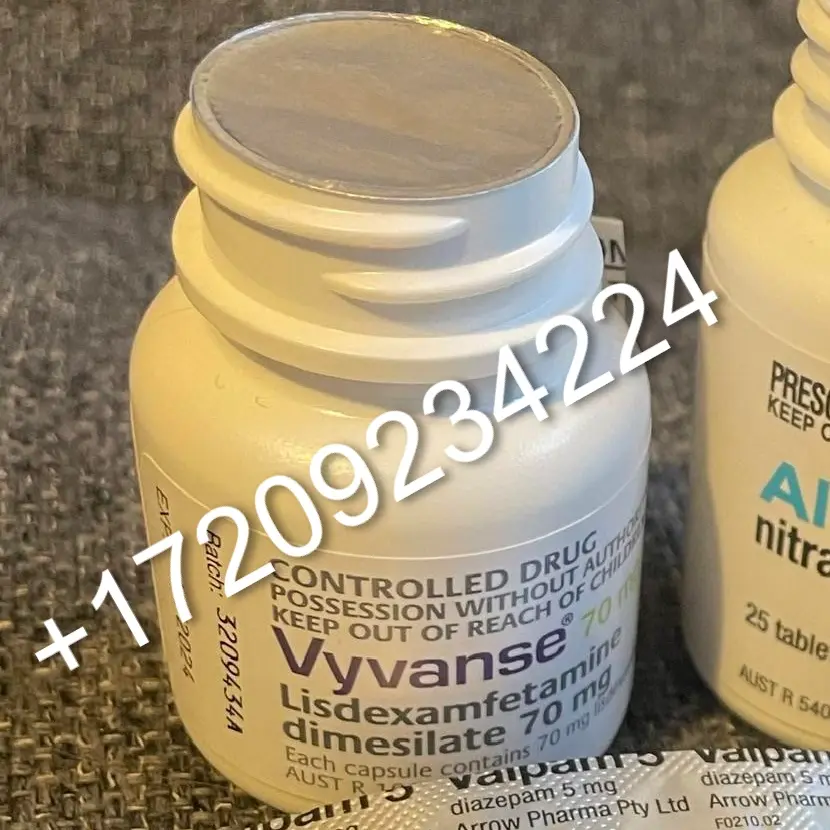Your cart is currently empty!
Vyvanse 70 mg capsule (lisdexamfetamine)
Vyvanse 70 mg capsule (lisdexamfetamine) Vyvanse 70 mg capsule (lisdexamfetamine) is a stimulant approved by the FDA to treat attention-deficit […]
Description
Vyvanse 70 mg capsule (lisdexamfetamine)
Vyvanse 70 mg capsule (lisdexamfetamine) is a stimulant approved by the FDA to treat attention-deficit hyperactivity disorder (ADHD) in adults and children ages 6 to 17 years of age, as well as moderate-to-severe binge eating disorder in adults.
As a component of a comprehensive therapy strategy that also includes psychological, social, and other treatments, Vyvanse is used to treat attention deficit hyperactivity disorder (ADHD). The capacity to pay attention, maintain focus, and also refrain from fidgeting may be improved.
Which is better Vyvanse or Adderall?
How do I take Vyvanse 70 mg?
Take Vyvanse once a day in the morning. It’s best to take it in the morning because it can interfere with sleep if taken later in the day. Vyvanse can be taken with or without food. Vyvanse is often started at a lower dose and increased based on your response. Always be sure to take Vyvanse exactly as your doctor tells you to take it.
Your doctor may sometimes stop your Vyvanse treatment for a period of time to check your symptoms of ADHD or binge eating disorder.
Vyvanse comes in capsules or chewable tablets. For children or others who prefer a softer or liquid formulation, the Vyvanse capsules can be opened and taken with yogurt, water or orange juice. Ask your pharmacist how to do this correctly.
Don’t take Vyvanse if you or your child are taking or have taken an anti-depression medicine called a monoamine oxidase inhibitor (MAOI) within the past 14 days. Also, don’t take Vyvanse if you are sensitive or allergic to Vyvanse or any of its ingredients, or had a reaction to other stimulant medicines.
Side effects with Vyvanse 70 mg?
In ADHD studies, the most common side effects of Vyvanse (≥5% and at least twice that of placebo) include:
- anorexia (loss of appetite) or decreased appetite
- anxiety
- decreased weight
- diarrhea
- dizziness
- dry mouth
- irritability
- insomnia (trouble sleeping)
- nausea
- upper abdominal pain
- vomiting
Decreased appetite can occur in roughly a third of patients, and insomnia (trouble sleeping) ranged from 13% to 27% of patients taking Vyvanse. Other more common adverse effects can include stomach upset, dry mouth, weight loss, and also anxiety or irritability.


Reviews
There are no reviews yet.